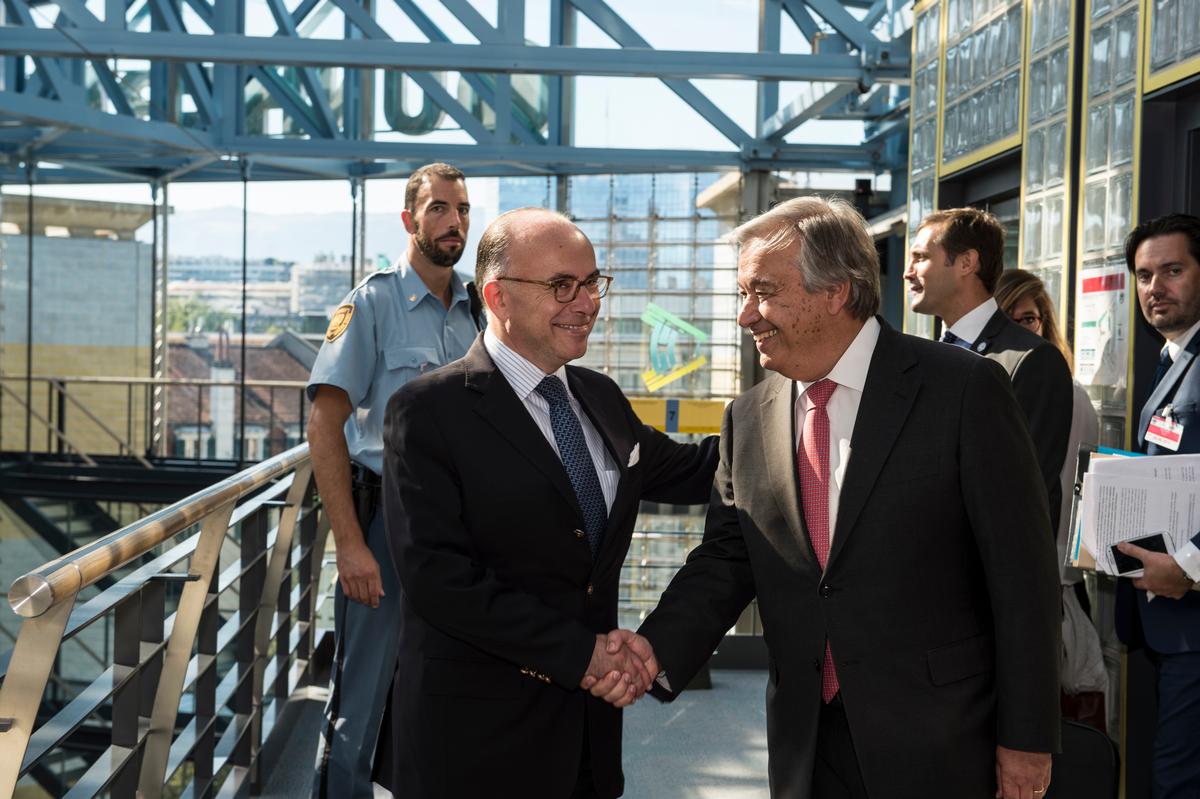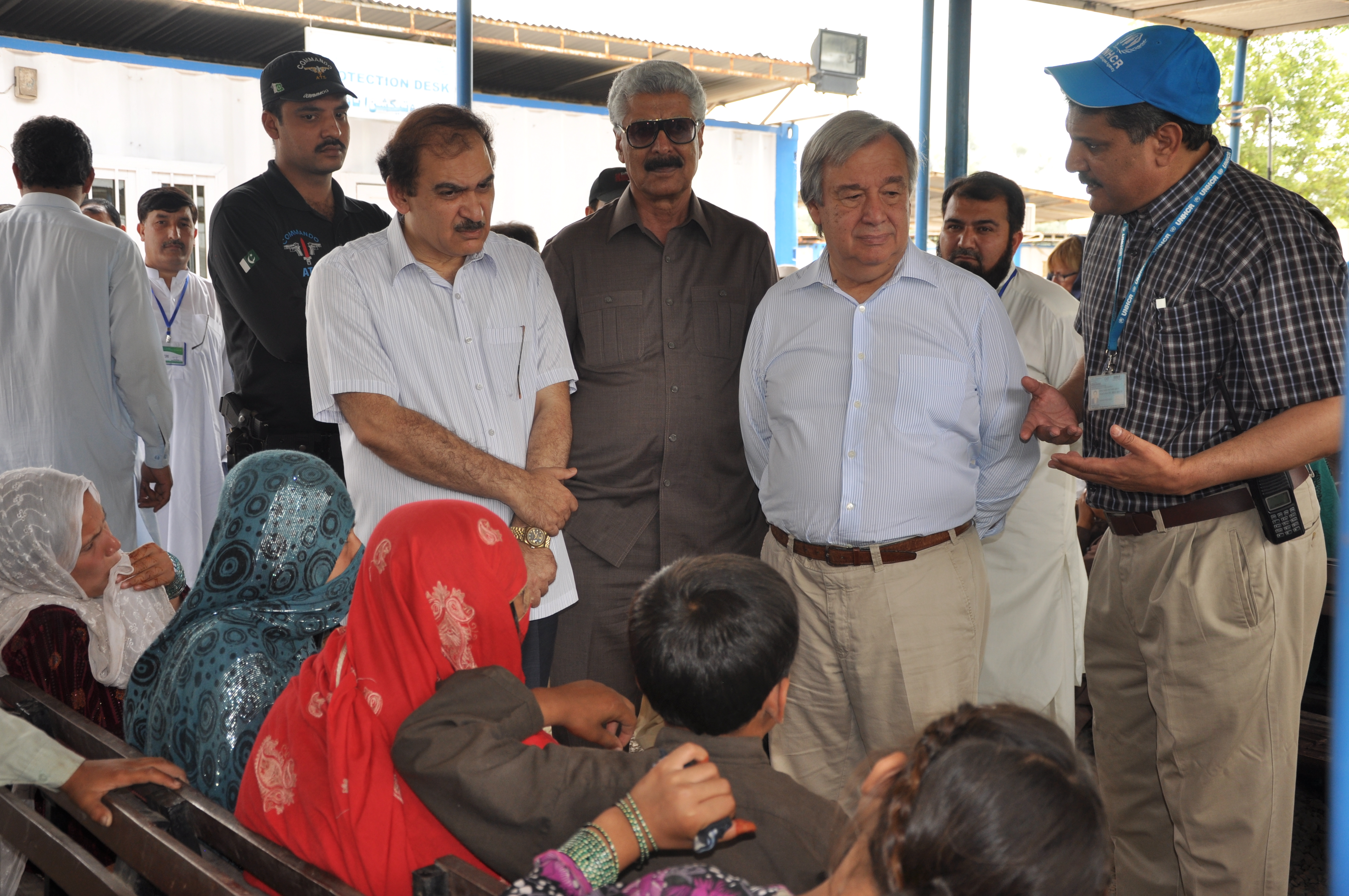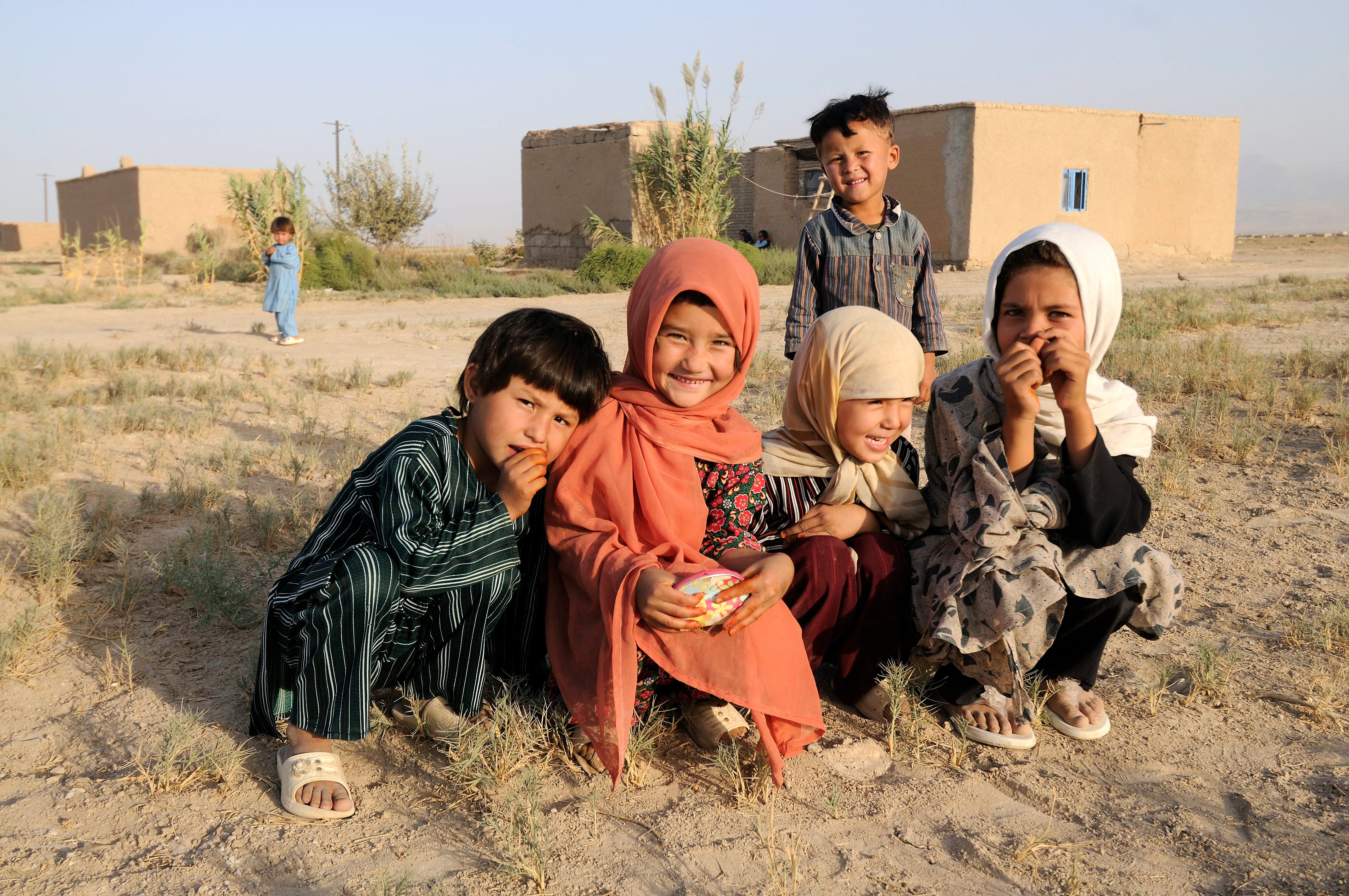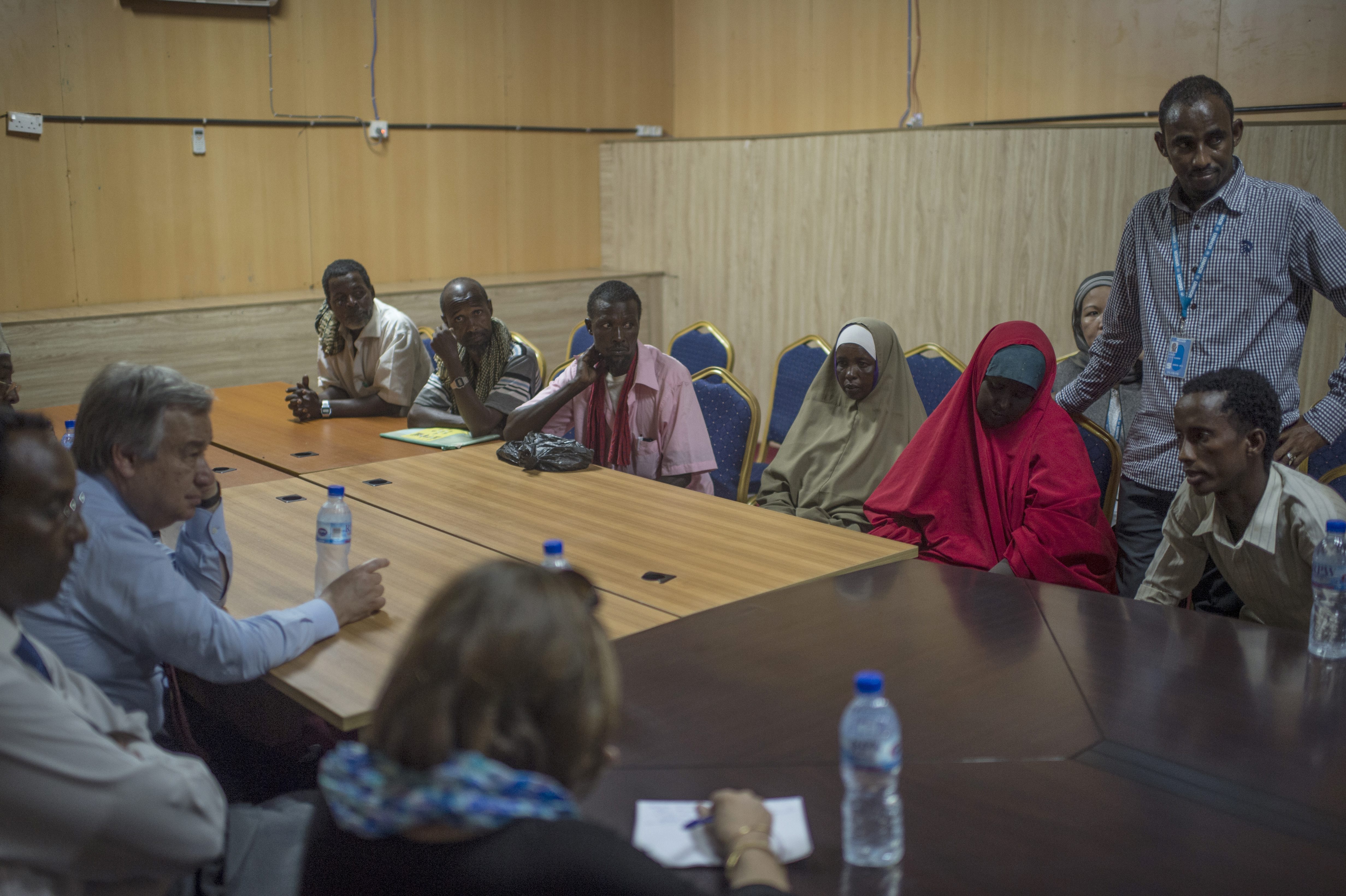UNHCR's Guterres thanks Europe, visits camp for Burundi refugees
UNHCR's Guterres thanks Europe, visits camp for Burundi refugees
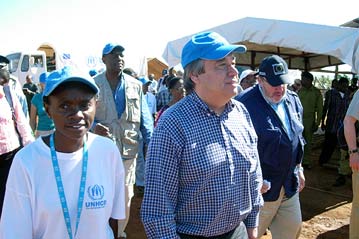
KASULU, Tanzania, June 15 (UNHCR) - High Commissioner António Guterres on Thursday warmly thanked Europe for its vital support before waving off a convoy of homeward-bound Burundians with his European counterpart.
On a visit to Mtabila camp with European Commissioner for Development and Humanitarian Aid Louis Michel, the UNHCR chief told a gathering of Burundian refugees that "without his help, we would not be able to do anything."
"We could not support you without the donations and support of the European Union (EU)," added Guterres, who was making his first overseas trip with Michel.
Guterres brought Michel to Tanzania, which hosts more refugees than any other African country, to show him how UNHCR is using the humanitarian aid it receives from the European community. Since 1998, the EU has contributed more than 210 million euros to assist refugees in Tanzania.
In Mtabila camp near the town of Kasulu, the two commissioners chatted with Burundian families moments before they left on a UNHCR convoy to return to their nearby homeland. They waved off a convoy of one bus and four trucks, taking 136 Burundians across the border to Makamba. In the camp, the two men also visited the paediatric ward of a hospital funded by the EU.
A representative of the refugees told Michel and Guterres that many more will likely go home following the signing of a peace agreement last Saturday between the Burundian government and the country's last rebel hold-out group - the FNL, or Forces for National Liberation. The refugees called on UNHCR to do more to create suitable conditions for them to restart their lives in their homeland.
Guterres told the refugees, "It's true that we have financial difficulties and it's true that we cannot give you everything you need." But he said UNHCR would work together with donors, like the European Union, "to create the conditions for you to go home as quickly as possible."
Guterres and Michel later travelled to the Tanzanian town of Kigoma to see a ship on Lake Tanganyika setting sail for the Democratic Republic of the Congo with Congolese refugees.
The two men will travel to Burundi on Friday and wind up their small Africa tour in Nairobi on Saturday. They are visiting the two countries to discuss humanitarian topics, in particular the issue of refugees. They also want to underscore the need for sustained international involvement in helping nations emerging from conflict
They are scheduled to meet the presidents of both countries, government ministers and people living in refugee camps and transit centres. Tanzania shelters around 350,000 refugees, while some 120,000 people are internally displaced in Burundi, which also hosts 30,000 Congolese refugees.
Europe has earmarked aid worth 11.5 million euros for Tanzania this year, which will be used to continue meeting the essential needs of the refugees and to support their repatriation. In Burundi, aid of 17 million euros will go to immediate life-saving actions and community-based interventions targeting the most affected groups, as well as assisting the reintegration of people returning from forced displacement. The main focal areas are health care, nutrition and sanitation.
The mission of Guterres and Michel is part of a strong partnership between UNHCR and the European Commission - the EU's executive body - to assist and protect refugees. In the last two years, the commission says it has provided aid worth 59 million euros to the most vulnerable people, mainly refugees, displaced people, returnees and host communities in Tanzania and Burundi.
To assist and protect the estimated 20.8 million people uprooted in the world today, the European Commission and the UNHCR signed a strategic partnership agreement in February last year. The commission's humanitarian aid department has worked closely with UNHCR since 2002, and funded UNHCR activities worth 134 million euros between 2003 and 2005.
Guterres flies from Nairobi to Abidjan in Côte d'Ivoire on Sunday and will hold meetings with various government officials on Monday before travelling to Liberia in the evening. On the June 20 World Refugee Day, the high commissioner will travel to an area near the Liberia-Sierra Leone border and meet with returning refugees and displaced people as well as local residents.
By Kitty McKinsey in Kasulu, Tanzania

